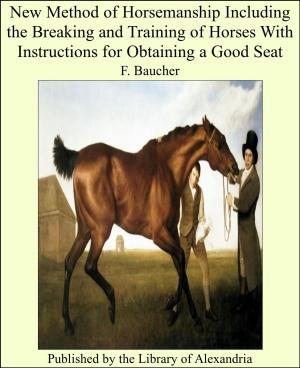The Blue Dragon: A Tale of Recent Adventure in China
Nonfiction, Religion & Spirituality, New Age, History, Fiction & Literature| Author: | Kirk Munroe | ISBN: | 9781465624680 |
| Publisher: | Library of Alexandria | Publication: | March 8, 2015 |
| Imprint: | Language: | English |
| Author: | Kirk Munroe |
| ISBN: | 9781465624680 |
| Publisher: | Library of Alexandria |
| Publication: | March 8, 2015 |
| Imprint: | |
| Language: | English |
These epithets, and many others equally contemptuous, such as "Rat Eater!" and "Piggy Tail!" were gleefully shouted by a mob of young ragamuffins who crowded about a single youthful figure, early one summer morning, on the elm-shaded main street of Hatton. The lad thus hustled and insulted was a good-looking chap according to the standard of his own people; though his long-lashed, wide-set eyes were narrower than those of his tormentors, his clear complexion held a tint of yellow, the front half of his head was shaved, and the remaining luxuriant growth of jet-black hair, such as all Chinese have, and of which they are so proud that they call themselves "the black-haired people," hung in a thick, glossy braid down his back. He wore a blue gown that fastened closely about his neck and fell in severely simple lines, without belt or ornamentation, almost to his feet. Below it could be seen a pair of black silk trousers, tightly fastened over a narrow section of white stockings, that in turn were lost to view in black cloth shoes having embroidered tops and felt soles. He had worn a round, visorless cap of black silk, surmounted by a crimson knot, but this had been knocked off, and now was being ruthlessly kicked and trampled underfoot by the hoodlums who, having discovered a victim that could be abused with impunity, were making the most of the welcome chance. Nor were they without encouragement in their cruel sport; for a group of men and young women, on their way to the great factory that was at once the mainstay of Hatton's prosperity and an ever-threatening menace, had paused to enjoy the sight of a crowd of American boys tormenting a helpless foreigner, and greeted the sorry spectacle with shouts of laughter. "That's right, kiddies!" cried one of the men. "Down with the yellowbelly, and teach him that this country ain't no place fer him nor his kind." "Dirty, rat-eating scab!" growled another. "Somehow, it don't seem right, though," said one of the young women, with a tone of pity in her voice, as the badgered lad was suddenly jerked backward and nearly thrown to the ground by a violent pull at his queue. "He does look so like a girl, with his blue dress, his little hands, and his braided hair." "Oh, hush up, Mag! You're too soft for anything!" exclaimed another. "He ain't nothing but just a low-lived heathen Chinee, like them as runs the laundry over to Adams. They'd take the bread out of honest working-people's mouths quick as wink, if they was give half a chance." Just then the factory bell rang with insistent clamor, and the jeering group of workers moved on. At a meeting held a few evenings before they had loudly cheered and unanimously passed a resolution to the effect that the government ought immediately to deport to their own country, at their own expense, all Chinese found within its territory. One of the speakers had declared that, if the government was slow in doing this thing, it was the duty of every American citizen to take the matter into his own hands, drive out the Chinese wherever found, destroy their places of business, and hunt them to the death if they offered resistance. Of course, the children of those men, having heard this resolution discussed, and its accompanying speeches repeated with applauding comments, deemed it their privilege to attack, and, if possible, drive from their virtuous village every representative of the hated race they might encounter; and, unfortunately for him, poor, innocent, helpless Chinese Jo was the first to fall into their joyful clutches. This was the first experience of his first day in Hatton, which he had reached after dark the evening before. He had come to America, from his far-away native land, in company with a dozen others of his young countrymen.
These epithets, and many others equally contemptuous, such as "Rat Eater!" and "Piggy Tail!" were gleefully shouted by a mob of young ragamuffins who crowded about a single youthful figure, early one summer morning, on the elm-shaded main street of Hatton. The lad thus hustled and insulted was a good-looking chap according to the standard of his own people; though his long-lashed, wide-set eyes were narrower than those of his tormentors, his clear complexion held a tint of yellow, the front half of his head was shaved, and the remaining luxuriant growth of jet-black hair, such as all Chinese have, and of which they are so proud that they call themselves "the black-haired people," hung in a thick, glossy braid down his back. He wore a blue gown that fastened closely about his neck and fell in severely simple lines, without belt or ornamentation, almost to his feet. Below it could be seen a pair of black silk trousers, tightly fastened over a narrow section of white stockings, that in turn were lost to view in black cloth shoes having embroidered tops and felt soles. He had worn a round, visorless cap of black silk, surmounted by a crimson knot, but this had been knocked off, and now was being ruthlessly kicked and trampled underfoot by the hoodlums who, having discovered a victim that could be abused with impunity, were making the most of the welcome chance. Nor were they without encouragement in their cruel sport; for a group of men and young women, on their way to the great factory that was at once the mainstay of Hatton's prosperity and an ever-threatening menace, had paused to enjoy the sight of a crowd of American boys tormenting a helpless foreigner, and greeted the sorry spectacle with shouts of laughter. "That's right, kiddies!" cried one of the men. "Down with the yellowbelly, and teach him that this country ain't no place fer him nor his kind." "Dirty, rat-eating scab!" growled another. "Somehow, it don't seem right, though," said one of the young women, with a tone of pity in her voice, as the badgered lad was suddenly jerked backward and nearly thrown to the ground by a violent pull at his queue. "He does look so like a girl, with his blue dress, his little hands, and his braided hair." "Oh, hush up, Mag! You're too soft for anything!" exclaimed another. "He ain't nothing but just a low-lived heathen Chinee, like them as runs the laundry over to Adams. They'd take the bread out of honest working-people's mouths quick as wink, if they was give half a chance." Just then the factory bell rang with insistent clamor, and the jeering group of workers moved on. At a meeting held a few evenings before they had loudly cheered and unanimously passed a resolution to the effect that the government ought immediately to deport to their own country, at their own expense, all Chinese found within its territory. One of the speakers had declared that, if the government was slow in doing this thing, it was the duty of every American citizen to take the matter into his own hands, drive out the Chinese wherever found, destroy their places of business, and hunt them to the death if they offered resistance. Of course, the children of those men, having heard this resolution discussed, and its accompanying speeches repeated with applauding comments, deemed it their privilege to attack, and, if possible, drive from their virtuous village every representative of the hated race they might encounter; and, unfortunately for him, poor, innocent, helpless Chinese Jo was the first to fall into their joyful clutches. This was the first experience of his first day in Hatton, which he had reached after dark the evening before. He had come to America, from his far-away native land, in company with a dozen others of his young countrymen.















